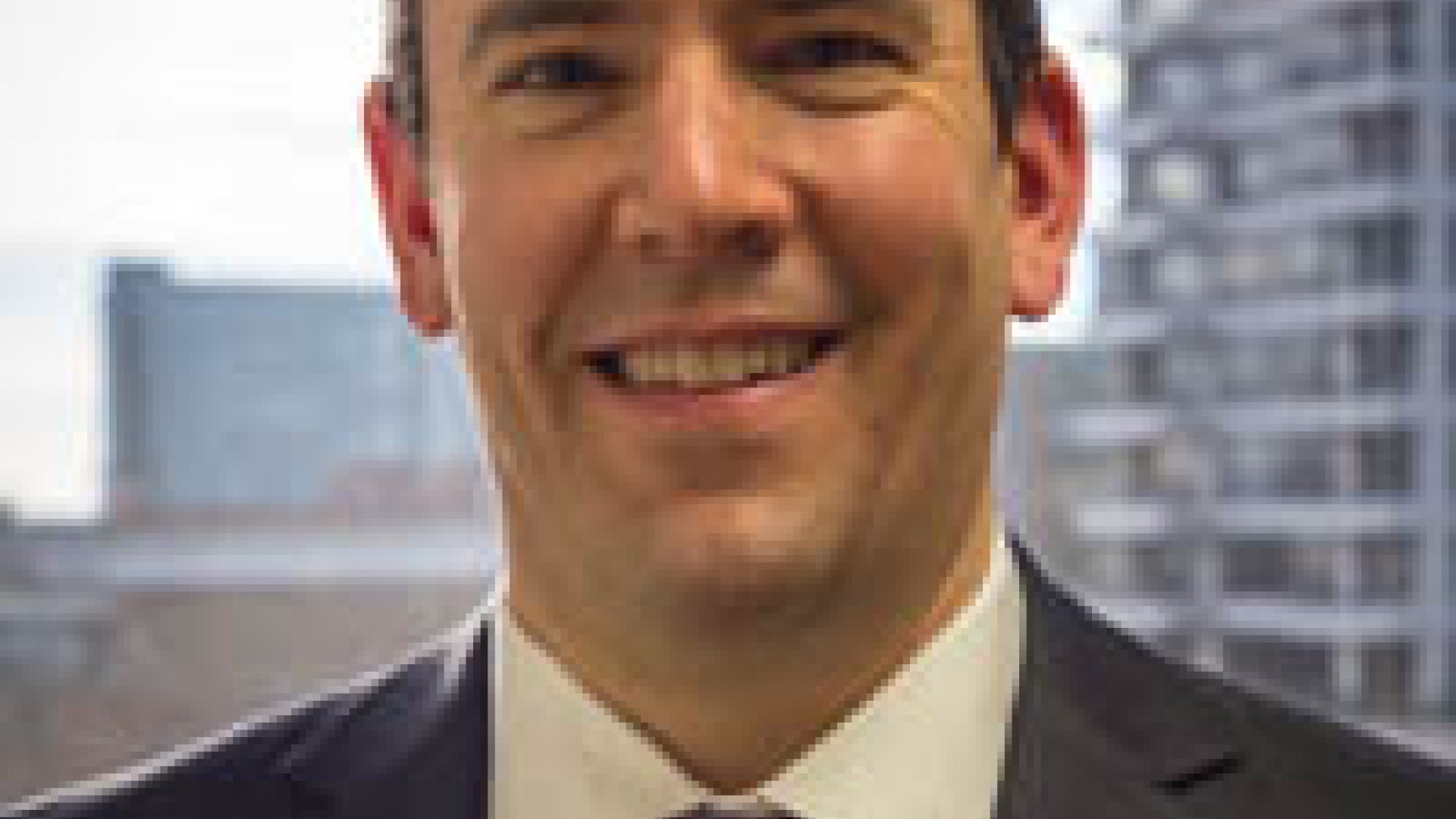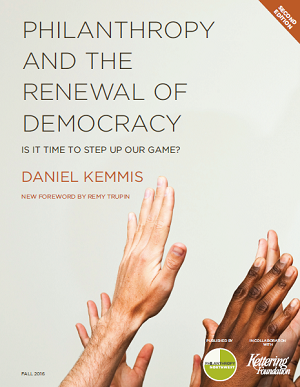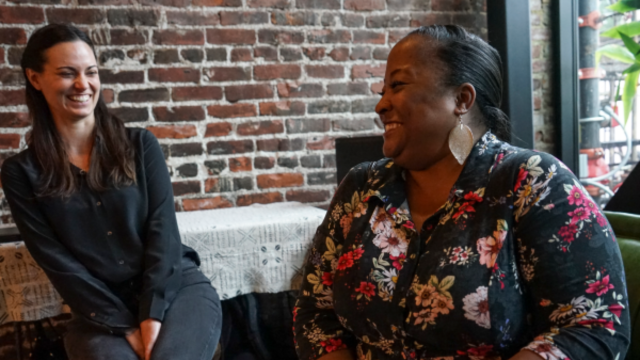
When Philanthropy Northwest and the Kettering Foundation published the first edition of Philanthropy and the Renewal of Democracy: Is It Time to Step Up Our Game?, the wounds and diseases afflicting our body politic were already causing concern among rising numbers of citizens, including philanthropists. Two years later, as we lurched through one of the strangest election seasons in modern American history and demand for a second edition of this publication grew, our question became even more urgent.
As Daniel Kemmis points out in this monograph, the relationship between philanthropy and democracy is a matter of both social compact and law. Given the state of our democratic institutions, it’s become crucial to think about philanthropic activity’s place within our political framework. It is clearly time to step up our game — but in what way and how to do so without abusing our power and privilege?
The manifestations of our civic problems are well-known, from declining levels of voter turnout to rising influence of money. However, repeating this list over and over can actually reinforce depression and inaction, giving further energy to the alienating and polarizing civic discourse dominating our election cycles.
 Philanthropy has an opportunity to choose a far more constructive and optimistic path.
Philanthropy has an opportunity to choose a far more constructive and optimistic path.
We can, for example, contribute to a functioning democracy by supporting programs and efforts to ensure that all of us truly have a voice in the choices that shape vibrant, equitable and inclusive communities. By 2020, the majority of American children will be from communities of color; by 2043, this will be true for the majority of all ages.1 Instead of focusing solely on the next election cycle or legislative session, historical changes of this magnitude invite us to ask what philanthropy can contribute to a healthier democracy in the long run. At a minimum, we can see that bringing an equity lens to our work will produce a better democracy.
This is not to suggest a strictly long-term view, however. Philanthropy also needs to “step up its game” in the here and now, by raising its voice to advocate for policy outcomes related to our missions, and for the strengthening of democratic practices and institutions that transcend any single mission.
Meanwhile, our sector should be mindful of these practical and philosophical challenges:
- How can philanthropy be more democratic in its own practices to help rebuild institutional trust among Americans?
- Does the orientation of advocacy in service of policy outcomes sometimes lead funders to inadvertently deepen polarization or contribute to other unhealthy democratic patterns of behavior?
- What can be done to reconcile the focus on mobilization around a specific policy decision vs. investing in organizing, leadership development and long-term community building for policy development?
- As philanthropy raises its voice alongside government and corporate institutions, how do we avoid exacerbating power imbalances?
- How do we articulate “outcomes” in the short term against the opportunities that are long-term that need more “democratic” engagement from the community?
As we pursue strengthening democracy for the common good, this monograph is offered as a resource for philanthropy. Philanthropy Northwest has also created Democracy Northwest, a discussion platform for philanthropists seeking to play a more effective role in strengthening democratic practices and institutions. We hope these efforts will be joined by a growing number and variety of resources for philanthropists seeking to step up their game in revitalizing our democracy.
Remy Trupin is a Philanthropy Northwest Catalyst Fellow, focused on advocacy, and the author of the new foreword on the Fall 2016 edition of Philanthropy and the Renewal of Democracy. He and Daniel Kemmis will be discussing the monograph in greater detail at Philanthropy Northwest's 2016 conference, Under One Sky in Missoula, MT.


